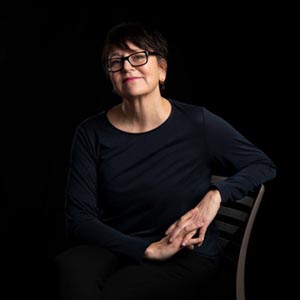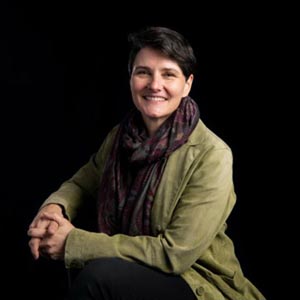Rewriting the representation of women in society
21 FEB 2022
3 mins read time
The way that women are represented in society and the roles they perform has evolved throughout history. Unquestionably, gender-based inequalities that are the product of sexist dogmas with historic origins, remain in a variety of contexts.
At the University of Exeter, we are committed to using our research expertise to help understand and address them.
Awareness of the myriad of sexual and discriminatory issues that women face to this day is not enough to make an impactful change. We need to spark the conversations that make it impossible not to pay attention.
By using bold new ways to redress societal inequality, our researchers are blazing a trail with innovative and interdisciplinary methodologies. The spectrum of their research is being applied to challenge convention with insightful results. New approaches cross-examine historical accounts and embark upon in-depth explorations into how the representation of women in society has evolved throughout the ages. We are discovering how these prevailing attitudes have manifested in discrimination and systematic abuse and why it continues to be overlooked.
Jane Whittle, Professor of Economic and Social History at the University of Exeter, is working to challenge the assumptions of how women are seen as secondary to men in their roles within the economy.
Her research team, have pored over historic records of working practices in England from the 1300s to the 1700s to put modern working practices into perspective. The results show that Tudor and Stuart women spent more time making money than caring for their families and were regularly employed in physically demanding jobs.
This work brings an entirely new perspective on England’s early modern economy, transforming how we think of its development. The role of women in the workforce is often misunderstood or dismissed, and this research creates a step-change in society’s understanding of gender and work. The roots of our current gender pay gap lie in these historic employment practices.
Dr Charlotte Bishop, Senior Lecturer in Law at the University of Exeter, has challenged the Domestic Abuse Act 2021 with her research into the disproportionate impact of domestic abuse on women. Such an overwhelming majority of cases of abuse and violence are towards wives and female partners, with coercive control being the root from which such gender inequality stems.
This research provided evidence that a gendered approach, focussing on the impact of coercive control, would provide the groundwork for the far-reaching and systemic change that is needed. Such distinction would help to tackle social inequality, re-evaluating the traditional domestic archetype and weakening the cultural norm of male dominance.
Without this bold creative thinking, the investigation into societal inequality towards women and the laws that perpetuate such an unrelenting and damaging cultural stasis, would lack the persuasive arguments to make lasting change.
At a time when Incel-related violence is increasing, a study led by the University of Exeter’s Dr Lewys Brace and commissioned by the Centre for Research and Evidence on Security Threats (CREST), is tracking the spread of Incel ideology online to help inform counter-extremism efforts and develop interventions. Incel ideology, which blames women for an Involuntary Celibate’s lack of sexual activity, has been linked to several incidences of terrorism. By mapping the ‘Incelosphere’, researchers aim to identify the dynamics that drive how ideas gain or lose traction, the geographical spread of the movement and its prominence in the UK and Ireland.
A major new study into the inequality in female electoral representation seeks to shed light on whether sexism, discrimination and violence are to blame. The research considers the ‘gender penalty’ that female candidates face on their path to political office.

Professor Susan Banducci from the University of Exeter's Politics department is leading a study into territories defined by electoral data, surveys and experiments from the electorate. This work will explore the connection between sexist cultures, campaign strategies and electoral outcomes, spending time on the campaign trail, observing interactions with the media within a variety of cultural contexts.
In their research into women in an Education context, Dr Lauren Stentiford, Dr George Koutsouris and Dr Alexandra Allan (Associate Professor) from the University's Graduate School of Education examine the weight of societal expectations that exert pressure on teenage girls to achieve high grades, become popular and to conform to a definition of what it is to be beautiful.
The risk of developing anxiety and mental health issues is exponentially linked to the culture embedded in the school system with evidence suggesting girls were more prone to this risk than boys.
This pressure for perfection, both personally and academically, gives rise to feelings of fear for the future, something that could be alleviated with a closer examination of its root causes.
As well as these cases, Professor Emily Bridger, Associate Professor in History, has made vital progress researching the epidemic of sexual violence suffered by women in South Africa in over 100 years of its history. In a separate field of focus, an examination into how women have been represented in the media tracks the vast inequality between them and men, not only in terms of wage disparity but also the portrayal of female characters by women on stage.
We believe in the transformative power of our research to shift both the seemingly intransigent perceptions of women and the general acceptance of the indisputable social inequalities across communities.
With such inquisitive and exploratory research, we have created a platform upon which new debates can be voiced, toxic relationships can be seen in the eyes of the law for the trauma they really cause, and preventative measures can be implemented, systematically, to give inherent protection to women in the face of the rising societal impact on equality.
Meet our researchers








